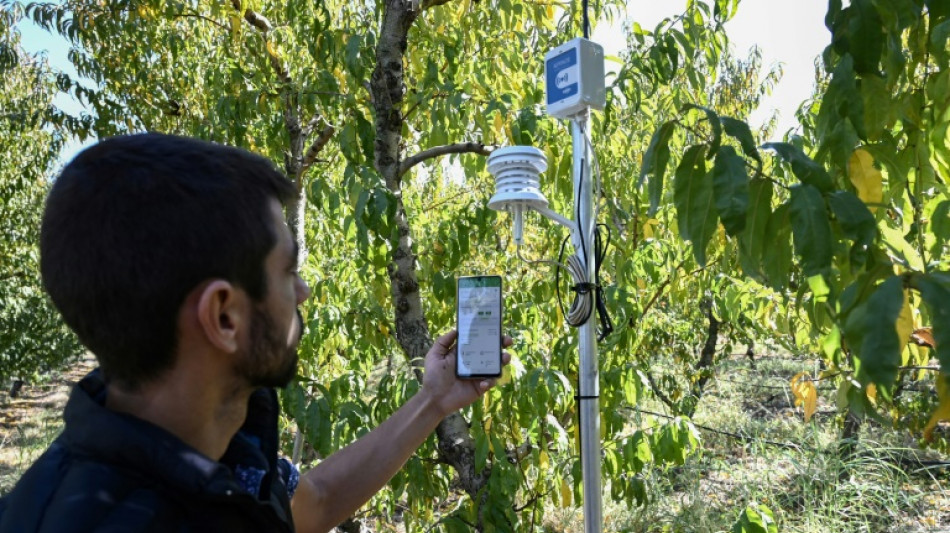
-
 Italian influencer Ferragni awaits verdict in Christmas cake fraud trial
Italian influencer Ferragni awaits verdict in Christmas cake fraud trial
-
Louvre and other French museums fare hikes for non-European visitors

-
 Japan's Takaichi to dissolve parliament for snap election
Japan's Takaichi to dissolve parliament for snap election
-
Dutch court hears battle over Nexperia

-
 World-first ice archive to guard secrets of melting glaciers
World-first ice archive to guard secrets of melting glaciers
-
Ted Huffman, the New Yorker aiming to update top French opera festival

-
 Ofner celebrates early then loses in Australian Open qualifying
Ofner celebrates early then loses in Australian Open qualifying
-
Singer Julio Iglesias accused of 'human trafficking' by former staff

-
 Luxury retailer Saks Global files for bankruptcy
Luxury retailer Saks Global files for bankruptcy
-
Asian markets mostly up with politics bump for Tokyo

-
 Iran vows fast trials over protests after Trump threat
Iran vows fast trials over protests after Trump threat
-
China's trade surplus hit record $1.2 trillion in 2025

-
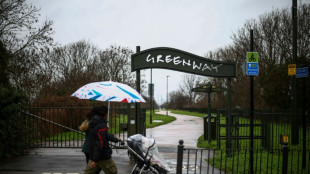 Trail goes cold in UK abandoned babies mystery
Trail goes cold in UK abandoned babies mystery
-
Japan's Takaichi set to call February snap election: media

-
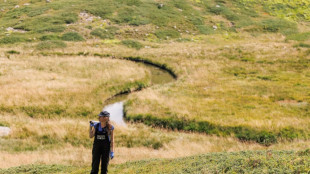 Scientist wins 'Environment Nobel' for shedding light on hidden fungal networks
Scientist wins 'Environment Nobel' for shedding light on hidden fungal networks
-
From bricklayer to record-breaker: Brentford's Thiago eyes World Cup berth

-
 Keys overcomes serve demons to win latest Australian Open warm-up
Keys overcomes serve demons to win latest Australian Open warm-up
-
As world burns, India's Amitav Ghosh writes for the future

-
 Actor Kiefer Sutherland arrested for assaulting ride-share driver
Actor Kiefer Sutherland arrested for assaulting ride-share driver
-
Gilgeous-Alexander shines as Thunder halt Spurs losing streak

-
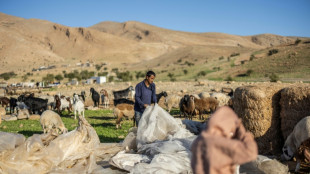 West Bank Bedouin community driven out by Israeli settler violence
West Bank Bedouin community driven out by Israeli settler violence
-
Asian markets mixed, Tokyo up on election speculation

-
 US official says Venezuela freeing Americans in 'important step'
US official says Venezuela freeing Americans in 'important step'
-
2025 was third hottest year on record: EU, US experts

-
 Japan, South Korea leaders drum up viral moment with K-pop jam
Japan, South Korea leaders drum up viral moment with K-pop jam
-
LA28 organizers promise 'affordable' Olympics tickets

-
 K-pop heartthrobs BTS to kick off world tour in April
K-pop heartthrobs BTS to kick off world tour in April
-
Danish foreign minister heads to White House for high-stakes Greenland talks

-
 US allows Nvidia to send advanced AI chips to China with restrictions
US allows Nvidia to send advanced AI chips to China with restrictions
-
Sinner in way as Alcaraz targets career Grand Slam in Australia

-
 Rahm, Dechambeau, Smith snub PGA Tour offer to stay with LIV
Rahm, Dechambeau, Smith snub PGA Tour offer to stay with LIV
-
K-pop heartthrobs BTS to begin world tour from April

-
 Boeing annual orders top Airbus for first time since 2018
Boeing annual orders top Airbus for first time since 2018
-
US to take three-quarter stake in Armenia corridor

-
 Semenyo an instant hit as Man City close on League Cup final
Semenyo an instant hit as Man City close on League Cup final
-
Trump warns of 'very strong action' if Iran hangs protesters

-
 Marseille put nine past sixth-tier Bayeux in French Cup
Marseille put nine past sixth-tier Bayeux in French Cup
-
US stocks retreat from records as oil prices jump
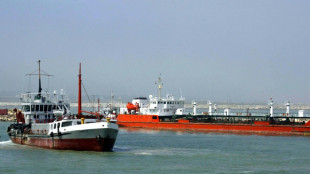
-
 Dortmund outclass Bremen to tighten grip on second spot
Dortmund outclass Bremen to tighten grip on second spot
-
Shiffrin reasserts slalom domination ahead of Olympics with Flachau win

-
 Fear vies with sorrow at funeral for Venezuelan political prisoner
Fear vies with sorrow at funeral for Venezuelan political prisoner
-
Pittsburgh Steelers coach Tomlin resigns after 19 years: club

-
 Russell eager to face Scotland team-mates when Bath play Edinburgh
Russell eager to face Scotland team-mates when Bath play Edinburgh
-
Undav scores again as Stuttgart sink Frankfurt to go third

-
 Fuming French farmers camp out in Paris despite government pledges
Fuming French farmers camp out in Paris despite government pledges
-
Man Utd appoint Carrick as manager to end of the season

-
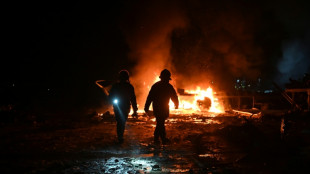 Russia strikes power plant, kills four in Ukraine barrage
Russia strikes power plant, kills four in Ukraine barrage
-
France's Le Pen says had 'no sense' of any offence as appeal trial opens
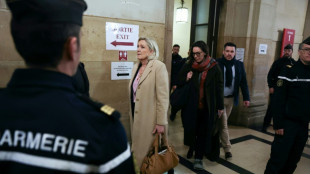
-
 JPMorgan Chase reports mixed results as Dimon defends Fed chief
JPMorgan Chase reports mixed results as Dimon defends Fed chief
-
Vingegaard targets first Giro while thirsting for third Tour title


Smart farming tech offers sprout of hope in Greece
Eyes glued to his mobile phone, farmer Sotiris Mournos pores over the latest microclimate and humidity data about his fields on the plain of Imathia in northern Greece.
The high-tech farming techniques he uses are making slow progress in Greece's tradition-bound and struggling agricultural sector, but growers like him see them as key to their future.
Mournos, 25, employs a Greek smart-farming app to boost production of his family's cotton fields and fruit trees.
Using real-time data recorded by a weather station, he can analyse and correlate the impact of weather conditions on his 10-hectare (nearly 25-acre) cotton plantation.
"We've managed to reduce the use of fertiliser and irrigation... (and thereby to) increase the financial return" of the farm, said Mournos, who gave up studying computer science at university to devote himself to the family holding in the town of Platy.
Measuring the humidity or the nitrogen level in the soil helps to curb the excessive use of fertilisers and saves water, he notes.
As in many other southern European countries, Greece's agricultural sector is chronically short of water and smart farming could help deal with that problem.
- Boosting yields -
The sector has also lost a major share of its available labour in recent decades, as young people snub farm work for better-paid jobs in services such as tourism.
Agriculture now represents just five percent of Greece's GDP, half what it was 20 years ago.
The government has budgeted 230 million euros ($231 million) over the next three years to revive the country's farming industry.
Most of that derives from the European Union's Common Agricultural Policy innovation fund.
"Most young people in my village prefer other jobs and have given up working in the fields," Mournos told AFP.
But he is making a go at farming, aiming to work smart by using the farming app for several years now.
It means he uses 40 percent less fertiliser on his cotton field and can avoid using two pesticide sprays -- altogether saving 9,000 euros (about $9,000) -- without affecting production rates.
Analysts say the farming app is not widely used in Greece although interest is gradually picking up.
But persuading farmers who may be less technologically minded than Mournos to embrace it faces myriad challenges.
A key hurdle is the small size of Greek farms -- less than 10 hectares on average -- and the country's largely mountainous terrain.
Greek farms are often family businesses or involve rented fields, making investment in tools and practices less appealing.
- Convincing farmers -
Meanwhile, an "endemic" lack of cooperation among farmers prevents them sharing costs, says Aikaterini Kasimati, an agricultural engineer at the University of Agronomy in Athens.
As a result, Greece lags far behind other European states in the use of smart farming, says Vassilis Protonotarios, marketing manager of Neuropublic, a company specialising in digital agriculture.
He said farmers could benefit from new technology without having to invest in expensive equipment or have "specialised digital skills".
Then, there is the difficulty of convincing farmers to try something new.
Organic farmer Thodoris Arvanitis says his colleagues are not interested in new technologies because they don't know enough about them and prefer long-used conventional methods.
"Farmers won't go after technology when they don't have enough money for fuel," he added, at his farm in the small town of Kiourka, some 30 kilometres (nearly 20 miles) north of Athens.
Attitudes may change in time as climate change puts additional pressure on farm costs, says Machi Symeonidou, an agronomist and creator of the agricultural IT startup Agroapps.
The war in Ukraine and its impact on global food supplies also shows that it is increasingly necessary to produce food at a local level, said agricultural engineer Kasimati.
"We see a constant degradation of fields and a fall in yield," she said, adding that water was also becoming expensive.
"But as the technology becomes simpler and cheaper, these tools will see more use," she added.
N.Shalabi--SF-PST




